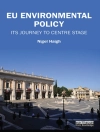The same aspects of American government and society that propelled the United States to global primacy have also hampered its orderly and successful conduct of foreign policy. This paradox challenges U.S. leaders to overcome threats to America′s world power in the face of fast-moving global developments and political upheavals at home.
U.S. Foreign Policy explores this paradox, identifies its key sources and manifestations, and considers its future implications. Authors Steven W. Hook and Amy Skonieczny help students learn how to think critically about these cascading developments and the link between the process and the conduct of U.S. foreign policy.
Cuprins
Figures, Tables, Maps, and Boxes
Preface
Part I The Setting of U.S. Foreign Policy
Chapter 1 The United States in a Turbulent World
Chapter 2 The Expansion of U.S. Power
Chapter 3 Dynamics of Decision Making
Part II Inside-Out: Government Sources of Foreign Policy
Chapter 4 Presidential Power
Chapter 5 Congress Beyond the “Water’s Edge”
Chapter 6 The Foreign Policy Bureaucracy
Part III Outside-In: External Sources of Foreign Policy
Chapter 7 Public Opinion at Home and Abroad
Chapter 8 The Impact of Mass Communications
Chapter 9 Social Movements and Interest Groups
Part IV Policy Domains
Chapter 10 National Security and Defense Policy
Chapter 11 Economic Statecraft
Chapter 12 Transnational Policy Problems
Appendix A U.S. Administrations Since World War II
Appendix B The War Powers Resolution of 1973
Glossary
Notes
References
Author Citations and Index
About the Author
Despre autor
Amy Skonieczny is Professor at San Francisco State University in the International Relations Department. Her research interests include populism and foreign policy, narratives and US trade politics, and the study of national identity and foreign policy discourses. She completed her Ph.D. in Political Science at the University of Minnesota. Skonieczny’s publications over the past five years have focused on the rise of populism in the United States, particularly with the Trump presidency and its impact on US trade policy. She is a co-editor of the book series Global Populisms and a board member of the journal Populism. Her recent publications include “Saying the Unspeakable: Populism, Performance and the Politics of Covid-19, ” forthcoming in Populism; Political Communication and Performative Leadership in International Politics, edited by Corina Lacatus, Georg Lofflmann and Gustav Meibauer (with Giorgio Boggio); “The Trump Shock: Populism and Changing Narratives of US Foreign Policy” (with Georg Lofflmann and Rubrick Biegon) in Populist Foreign Policy: Regional Perspectives of Populism in the International Scene, edited by Philip Giurlando and Daniel Wajner (2023); “Economic Security and the US-China Trade War” in Contemporary Cases in U.S. Foreign Policy: From National Security to Human Security, 6th edition, edited by Ralph Carter (2021); ‘Trump Talk: Rethinking Elections, Rhetoric, and American Foreign Policy’ in the journal Politics (2021); and ‘The Trump Effect: Toxic Politics and Emotional Populism in US-China Relations’ (with Ancita Sherel), forthcoming in the special issue ‘The Effects of Global Populism’ in International Affairs (expected Fall 2024).












